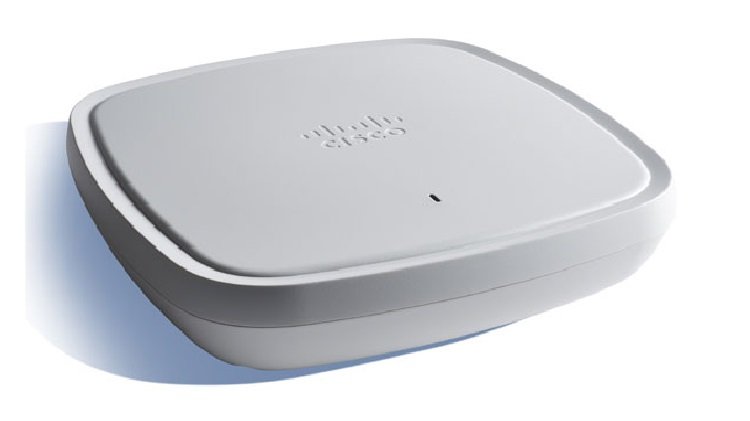Cisco announced enters into an new era of wireless with the launch of its new Wi-Fi 6 access point, the new standard for Wi-Fi networks, is redefining what’s possible for businesses — powering a new era of immersive wireless experiences and the connecting of billions of things.
 Cisco is also extending the industry’s most extensive campus networking portfolio by delivering a campus core switch purpose-built for cloud-scale networking. By coupling powerful automation and analytics software with a complete array of next-generation switches, access points, and controllers for the campus, Cisco enables the industry’s only end-to-end, wireless-first architecture.
Cisco is also extending the industry’s most extensive campus networking portfolio by delivering a campus core switch purpose-built for cloud-scale networking. By coupling powerful automation and analytics software with a complete array of next-generation switches, access points, and controllers for the campus, Cisco enables the industry’s only end-to-end, wireless-first architecture.
Built on the same fundamental wireless innovations as 5G, these new standards will reshape how businesses and consumers interact with the world. Beyond being significantly faster than the previous generation, Wi-Fi 6 delivers up to 400 percent greater capacity and is more effective in high-density settings like large lecture halls, stadiums and conference rooms. Latency is vastly improved, allowing for near real-time use cases. Wi-Fi 6 is also easier on connected devices’ batteries and provides an overall more predictable user experience.
Cisco is now rolling out several products and partnerships so that businesses can deliver a genuinely unplugged and uninterrupted experience.
Wi-Fi 6 Access Points: New access points across the Catalyst and Meraki portfolios go beyond providing the new Wi-Fi 6 standard. With custom, programmable chipsets and access to industry-leading analytics capabilities, Cisco’s latest APs deliver a smarter and more secure wireless network. The new access points are also multilingual, with the ability to communicate with multiple IoT protocols, including BLE, Zigbee, and Thread.
Core Switch for the Campus Network: Cisco raises the bar with the Catalyst 9600 core switch family, which will serve as the foundation central to any network’s successful operation. To deliver the most secure and efficient wireless experience, organizations need a single networking fabric that brings wired and wireless together. Built as the next evolution of the Catalyst 6000 — the most successful networking product in the history of the internet — the Catalyst 9600 will be the bedrock for the next generation of intent-based business networks.
New Developer Resources: Wi-Fi 6 and 5G represent an incredible opportunity for developers. To enable them to create the immersive experiences that these new levels of connectivity promise, Cisco is unveiling the DevNet Wireless Dev Center. DevNet, Cisco’s developer network, offers the learning labs, sandboxes and developer resources needed to create game-changing wireless applications. The Cisco Catalyst and Meraki access platforms are open and programmable all the way down to the chipset level, allowing applications to take advantage of network programmability in new and exciting ways.
New Ecosystem Partnerships: Prior to the launch of its Wi-Fi 6 access points, Cisco completed interoperability testing with Broadcom, Intel and Samsung to address the inevitable gaps that come with a new standard. Samsung, Boingo, GlobalReach Technology, Presidio and others are expected to join the Cisco OpenRoaming project to solve one of today’s biggest wireless pain points. The Cisco OpenRoaming project aims to make it easier to seamlessly and securely hop between Wi-Fi and LTE networks and onboard public Wi-Fi.
“Every leap in connectivity enables the next wave of profound innovation. 5G and Wi-Fi 6 represent a new era of connectivity,”said Osama Al-Zoubi, Chief Technology Officer, Cisco Middle East and Africa.” Developers are already creating the next generation of wireless-first, immersive experiences. With billions of things connecting to the network, this growth will create unprecedented complexity for IT. Cisco is building a multi-domain network architecture to simplify complexity for IT, allowing CIOs to deliver against their innovation agenda.”
 Wi-Fi 6 and 5G represent an enormous opportunity but require businesses to tackle big challenges. Today, the workplace is wherever we work. Users are more dependent on mobile experiences and have no tolerance for downtime. To meet these demands, the network must be:
Wi-Fi 6 and 5G represent an enormous opportunity but require businesses to tackle big challenges. Today, the workplace is wherever we work. Users are more dependent on mobile experiences and have no tolerance for downtime. To meet these demands, the network must be:
Wireless-first: Today, mobile technologies are fueling economic growth — making it easier for workers to collaborate, shoppers to purchase, students to learn — from anywhere. To deliver a great wireless experience, IT needs to look beyond the Wi-Fi and solve for the full end-to-end experience — driving consistent security, reliability and performance.
Cloud-driven: The cloud enables unprecedented scale. Cisco uses the cloud to deliver new innovations faster. The cloud also helps IT move from reactive to proactive by taking global insights and delivering best practices to help address problems before they impact users.
Data-optimized: The network offers millions of data points, providing context on users, their experience, and their vulnerabilities. Using powerful analytics, we can unlock new solutions that optimize IT operations, support better business decisions, provide innovative security solutions and engage customers in more effective ways.
Over the past two years, Cisco has built out its intent-based networking portfolio to prepare customers for tomorrow’s challenges. Cisco’s new access points and campus switch are purpose-built for intent-based networking and represent the culmination of Cisco’s efforts to reinvent its entire access portfolio.
Cisco Customer Experience for wireless and switching accelerate deployment of next-gen intent-based networking solutions while reducing risk and disruption. Cisco Customer Experience’s portfolio provides expert guidance, best practices and innovative tools so that customers can transition with greater ease and confidence. This also allows them to innovate faster, stay competitive, extract more value and realize faster ROI.












